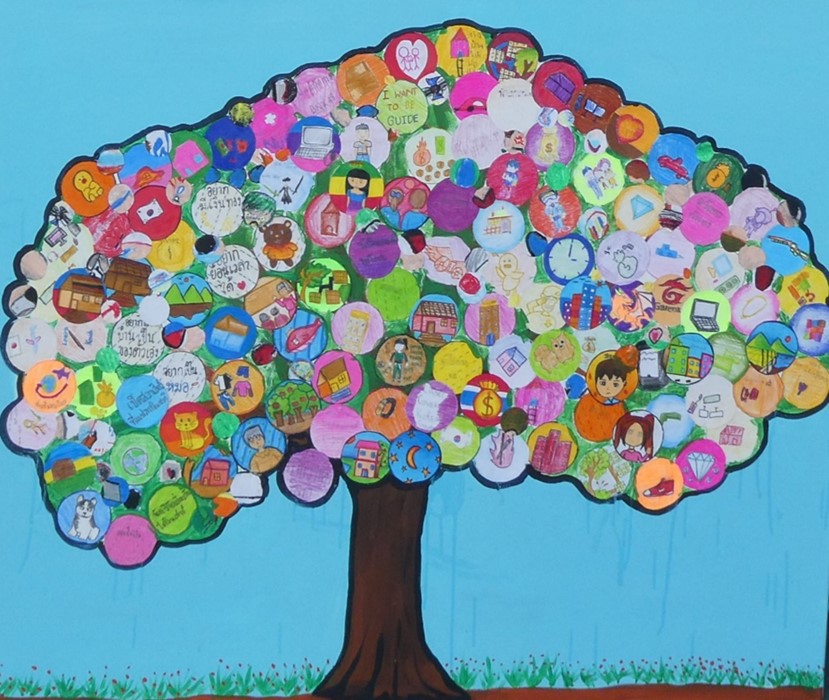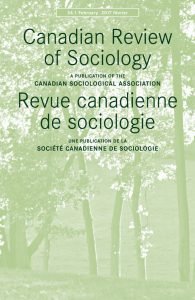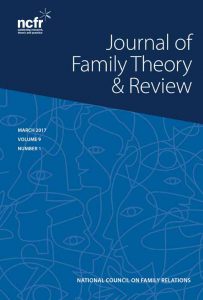‘Doing family’ in adversity: exploring children’s and families’ experiences of alternative care in Thailand.

Family is a fundamental social institution that plays a vital role in shaping individuals’ identities, relationships, and well-being. Traditionally, the concept of family has been associated with blood ties and shared genetic heritage. However, the understanding of family has evolved over time, acknowledging the diverse forms and dynamics that exist within it. A key sociological concept that challenges conventional definitions or models of family is the idea of “doing family.”
“Doing family” refers to the actions, behaviours, and relationships that individuals engage in to create and maintain a sense of family, regardless of their biological connections. It recognises that family is not solely defined by genetics, but rather by the mutual support, care, and shared experiences that individuals cultivate with their loved ones.
In our recent study we explore how children and their parent/guardians in Thailand ‘do family’ in alternative care settings. We used creative arts-based methods to explore their experiences of care and the ways they built and maintained relationships with their peers, caregivers, families and communities. We engaged with 160 children who were growing up apart from their parents in children’s homes, temples, residential schools and foster care. In these contexts, the concept of “doing family” takes on a special significance. When children are placed in these settings, often due to circumstances beyond their control, they face the challenge of navigating their sense of family and maintaining connections with their birth parents. We also interviewed 20 parents who have placed their children in alternative care settings and many explained to us how they strive to continue “doing family” despite living apart.
The study findings highlight the various barriers that children and parents face in maintaining contact and ‘doing family’. One significant barrier is the dissuasion from care staff, who often discourage parents from visiting their children. They may argue that visits unsettle the children and make them miss their families more. Some parents were even told not to visit the children’s home to avoid unsettling both their child and other children who did not have parents visiting them. One of the parents we interviewed explained to us that she had been told not to visit her children in an NGO-run children’s home unannounced, in case donors were present. It seems the home was framed as an orphanage to donors for fundraising purposes and having parents show up impromptu could undermine that false narrative.
Int.: “Did you visit him often?
Mother: 4-5 times a year. I have to inform the foundation that I am going to visit first, if not they will not let me in… the foundation told their sponsor that the kids don’t have parents, and if we go there without telling them first, they will have difficulty with their sponsors.
Int.: Children with parents do not meet their criteria?
Mother: Yes. So, I must inform them if I want to visit the kids.
Int.: To make sure that you will not meet the sponsor?
Mother: Yes.”
The same mother went on to explain that despite this narrative of orphanhood she was in daily contact with her son thanks to his access to a mobile phone.
Int.: “How often did you call him now that he has a cell phone?
Mother: Almost every day. He calls me after dinner around 6 or 7 p.m. If I call when he is not available, he will tell me to call back later”.
This practice directly impacts a child’s relationship with their parent and exposes the exploitative reality of the ‘orphan myth’, which can be perpetuated for the care settings’ financial needs over children’s needs.
The COVID-19 pandemic also presented additional challenges in maintaining contact. Family members were prohibited from visiting care settings, and social distancing measures limited physical interactions during family time. Parents expressed their concerns about not being able to hug their children or spend quality time with them due to the restrictions. However, despite these challenges, parents and children found alternative ways to stay connected, such as regular phone calls. It is evident that the desire for contact and the bond between parents and children remained strong, even in the face of adversity.
The narratives of parents and caregivers in this study demonstrate their strong sense of care and protection for their children, even when they are living apart. The decisions to place their children in care were often made with the belief that it would provide them with better opportunities and a higher quality of life. However, concerns about the level of care provided in some settings were also expressed by a few parents, leading them to bring their children back home. These concerns ranged from emotional distress and bullying among children to unsatisfactory living conditions and inadequate care.
Despite the challenges and barriers to maintaining contact, many parents and caregivers expressed their plans for future reunification with their children. They were actively saving money and making preparations to support their children’s education and future endeavors. This demonstrates their commitment to “doing family” and their belief in the long-term well-being of their children.
The study findings underscore the importance of recognising and addressing the barriers to maintaining contact in alternative care settings. It is crucial to include family contact arrangements in individual care plans to ensure consistency and strengthen existing bonds between children and their families. This not only supports the rights of the child but also promotes their overall well-being and social capital throughout their life-course.
Our study highlights the resilience and determination of children, parents, to ‘do family’ and maintain familial connections despite the challenges of living apart. It emphasises the need for meaningful family time and the recognition of family contact as a fundamental right of the child. By addressing the barriers and promoting safe and consistent family contact, alternative care systems can better support children’s well-being and create opportunities for reunification with their families.
To read the full Open Access research article, see: Rogers, J., Karunan, V., Ketnim, P., & Saeli, A. (2023). ‘Doing family’ in adversity: Findings from a qualitative study exploring family practices in alternative care settings in Thailand. Children & Society, 00, 1-20. https://doi.org/10.1111/chso.12771
Dr Justin Rogers is a Lecturer in Social Work at the Faculty of Wellbeing, Education and Language Studies, The Open University, UK




1099-0860/asset/NCB_logo.gif?v=1&s=40edfd0d901b2daf894ae7a3b2371eabd628edef)
